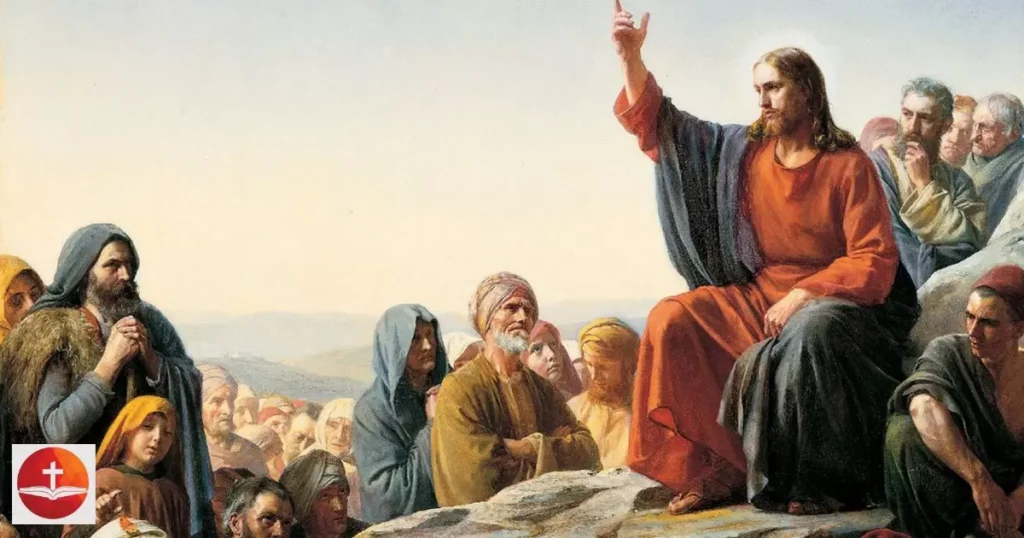“Explore the pivotal teachings and events of the New Testament that shape Christian faith and practice.”
The New Testament is a foundational text for Christianity, containing teachings, events, and writings that significantly influence the faith of millions worldwide. It consists of 27 books, including the Gospels, Acts, Epistles, and Revelation.
Each part of the New Testament contributes to understanding the life of Jesus Christ, the early Christian church, and the ethical and theological principles of the Christian faith.
This article provides a summary of the key teachings and significant events recorded in the New Testament, offering a comprehensive overview that highlights the essence these sacred scriptures.
Key Teachings and Events
The Life and Ministry of Jesus Christ
- Birth of Jesus: Jesus was born in Bethlehem to Mary and Joseph. His birth is considered a fulfillment of Old Testament prophecy (Matthew 1:18-25).
- Baptism of Jesus: Jesus was baptized by John the Baptist in the Jordan River, marking the beginning of His public ministry (Matthew 3:13-17).
- Temptation in the Desert: After His baptism, Jesus spent 40 days fasting and was tempted by Satan. He overcame these temptations with scripture (Matthew 4:1-11).
- Sermon on the Mount: Jesus delivered key teachings on ethics and spirituality, including the Beatitudes (Matthew 5-7).

- Miracles: Jesus performed many miracles, such as healing the sick, casting out demons, and raising the dead, demonstrating His divine authority (John 2:1-11; John 11:38-44).
- Parables: Jesus used parables—simple stories with deeper spiritual meanings—to teach about the Kingdom of God (Luke 15:11-32).
- Transfiguration: Jesus was transfigured on a mountain, revealing His divine glory to Peter, James, and John (Matthew 17:1-9).
- The Last Supper: Jesus shared a final meal with His disciples, instituting the practice of communion (Luke 22:14-20).
- Crucifixion: Jesus was crucified under the Roman governor Pontius Pilate, an event central to Christian salvation (Matthew 27:32-56).
- Resurrection: Jesus rose from the dead on the third day after His crucifixion, confirming His divine nature and promise of eternal life (Matthew 28:1-10).
The Early Christian Church
- Ascension of Jesus: After His resurrection, Jesus ascended to heaven, promising to send the Holy Spirit (Acts 1:9-11).
- Pentecost: The Holy Spirit descended upon the apostles, empowering them to speak in various languages and boldly proclaim the gospel (Acts 2:1-4).
- Growth of the Church: The early church grew rapidly as the apostles preached and performed miracles (Acts 2:42-47).
- Conversion of Saul: Saul, a persecutor of Christians, converted to Christianity and became known as Paul (Acts 9:1-19).
- Paul’s Missionary Journeys: Paul traveled extensively to spread the gospel, establishing numerous churches across the Roman Empire (Acts 13-14; 16-18).
- Council of Jerusalem: Early church leaders met to discuss and resolve issues concerning Gentile believers and Jewish laws (Acts 15:1-29).
- Paul’s Epistles: Paul wrote letters to various churches, addressing theological issues and providing guidance (Romans, Corinthians, Ephesians, Philippians, Colossians).
- Persecution: The early church faced significant persecution from both Jewish and Roman authorities (Acts 8:1; Revelation 2:10).
Theological Teachings
- Justification by Faith: The New Testament teaches that salvation comes through faith in Jesus Christ, not by works (Romans 3:28).
- The New Covenant: Jesus established a new covenant through His death and resurrection, replacing the old covenant of the Law (Hebrews 8:6-13).
- Grace and Redemption: Christians believe in the grace of God as the means of redemption and forgiveness of sins (Ephesians 2:8-9).
- The Fruit of the Spirit: The Holy Spirit produces fruit in the lives of believers, including love, joy, and peace (Galatians 5:22-23).

- The Great Commission: Jesus commanded His followers to go into all the world and make disciples of all nations (Matthew 28:18-20).
The Revelation
- John’s Vision: The Apostle John received a vision of the end times, recorded in the Book of Revelation (Revelation 1:9-20).
- The Seven Churches: John wrote letters to seven churches in Asia Minor, addressing their strengths and weaknesses (Revelation 2-3).
- The Throne Room Vision: John described a vision of heaven and the worship of God and the Lamb (Revelation 4-5).
- The Seven Seals: The opening of the seven seals reveals judgments and events leading up to the end times (Revelation 6).
- The Antichrist: Revelation speaks of a future Antichrist who will deceive many and oppose God (Revelation 13).
- The Final Battle: The Book of Revelation describes a final battle between good and evil, leading to the defeat of Satan (Revelation 19:11-21).
- The New Heaven and New Earth: The final chapters describe the creation of a new heaven and earth, where God will dwell with His people (Revelation 21-22).
Teachings on Christian Living
- Love Your Neighbor: Jesus emphasized the command to love your neighbor as yourself, which is central to Christian ethics (Mark 12:31).
- Forgiveness: Christians are called to forgive others as they have been forgiven by God (Matthew 6:14-15).
- The Role of the Church: The church is described as the body of Christ, with each member playing a vital role (1 Corinthians 12:12-27).
- Spiritual Gifts: Believers are given spiritual gifts to serve the church and fulfill their God-given purpose (1 Corinthians 12:4-11).
- Living by the Spirit: Christians are encouraged to live according to the Spirit, producing fruit that reflects God’s character (Galatians 5:16-26).
Key Figures
- Peter: One of Jesus’ closest disciples, Peter played a significant role in the early church and was a leading figure among the apostles (Matthew 16:18).
- James: The brother of Jesus and a leader in the Jerusalem church, James wrote the Epistle of James, focusing on practical Christian living (James 1:1).
- Jude: Another brother of Jesus, Jude wrote an epistle warning against false teachers and encouraging believers to stay faithful (Jude 1:3-4).
- Timothy: A young disciple of Paul, Timothy received two letters from Paul offering guidance on church leadership and personal conduct (1 Timothy, 2 Timothy).
- Titus: Paul wrote to Titus, instructing him on church organization and sound doctrine (Titus 1:5).
Future Prophecies
- The Return of Christ: The New Testament prophesies the return of Jesus Christ, which will mark the culmination of human history (Matthew 24:30; Revelation 1:7).
- The Judgment: There will be a final judgment where all people will give an account of their lives before God (Matthew 25:31-46).
- Eternal Life: Believers are promised eternal life with God, free from sin and suffering (John 3:16; Revelation 21:4).
Nata Salas Ten-Step Bible Study Routine: Enhancing Your Study Practice
The Apostolic Letters
- Hebrews: The Epistle to the Hebrews explains the supremacy of Christ and the new covenant He established (Hebrews 1:1-4).
- 1 Peter: Peter’s first letter encourages Christians to endure suffering and remain faithful to God (1 Peter 1:6-7).
Answers To Key Questions.
1. What are the main sections of the New Testament? The New Testament is divided into the Gospels, Acts, Epistles (Pauline and General), and Revelation.
2. Why is the resurrection of Jesus important in Christianity? The resurrection confirms Jesus’ divine nature and provides the basis for the Christian hope of eternal life.
3. What is the significance of the Sermon on the Mount? The Sermon on the Mount contains fundamental teachings of Jesus, including the Beatitudes, which outline the values and attitudes of the Kingdom of God.
4. Who were the primary authors of the Epistles? The primary authors were the Apostles Paul, Peter, James, John, and Jude.
5. What is the purpose of the Book of Revelation? Revelation provides a vision of the end times, offering hope and encouragement to Christians facing persecution and awaiting Christ’s return.
6. How does the New Testament view the role of the Holy Spirit? The Holy Spirit is seen as a guide, comforter, and source of spiritual gifts, empowering believers to live according to God’s will.
Conclusion
The New Testament presents a rich tapestry of teachings, events, and theological insights that have shaped Christian faith and practice throughout history. From the life and teachings of Jesus Christ to the early church’s struggles and triumphs, these scriptures offer profound wisdom and guidance for believers.
The messages of grace, redemption, and hope found in the New Testament continue to inspire and challenge Christians today, underscoring its timeless relevance and significance.

Hi! I’m Zadie Smith, the writer behind BiblePulze.com. I’m passionate about exploring and sharing insights on Bible topics in a way that’s easy to understand. Whether you’re looking to dive deep into scripture or just want to learn more about its teachings, I aim to make the Bible accessible and engaging for everyone.

